The Eye of the Fish takes housing very seriously. Lack of housing is causing headaches and headlines from north of Auckland to, well, somewhere further south of Auckland, and everywhere in between: various causes have been targeted for the lack of housing, with blame normally involving a mixture of too many foreigners, too many people wanting to live in Auckland, and too little land being made available for building on.
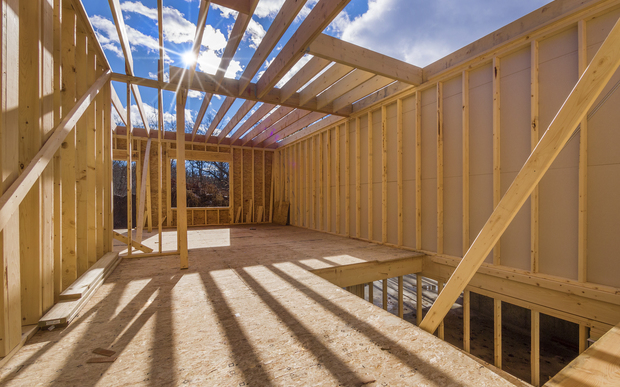
The Eye of the Fish has a different answer to what the problem is, but there are some certain basic economic principles that are being forgotten about here. I’m no economist but I’ve lived through enough economic crashes to have an opinion to what causes them. It seems to me that what we have here is quite simply an issue of excess liquidity: too much money in the system. The causes for this go way back.
In a closed loop system, like NZ was in the pre-Muldoon era, NZ had very strong controls over the flow of capital. The population was lower (I remember the day we clicked over to Two Million people!), section sizes were larger, and no one lived in the city (preposterous notion!). But more importantly, property supply and demand was basically balanced. There was moderate, manageable growth. You were basically forbidden from taking money into or out of the country, and credit cards were still to be invented. Money was locked in, locally, and did not flow around the world as it does now. The Government controlled the mortgage business (you had to apply to the State Advances Loan Corporation for money, or so my mother says), but basically, one average family could afford to buy one average family house, based on one average working man’s salary. New Zealand was, back then, an incredibly egalitarian country, with a very small spread of salary range. My Dad, working class average bloke, earned a wage that was about a third as much as that of the boss of his company, a very large NZ corporation. So, a spread of one to three. And lastly, but important to note, women didn’t really do much paid work in those days.

Its important to understand that this was the system back then, settled into a stable state: one family, one house, based on one wage. New Zealand had the highest rate of home ownership in the world. The system was stabilised on the amount of money a person could raise as a mortgage, being based on a fairly stable ratio of how much money one man could earn, in one lifetime, to purchase one standard home for one family. This also meant that one single man could afford one house for one person also. Note those numbers: One, One, One, One.

But then things changed.

To the joy of many people, New Zealand became a lot more egalitarian and started to include women in that equation. Women, previously stay-at-home housewives (“wedded to the house” – what a horrible concept), were liberated from the shackles of domestic slavery, and were allowed to go out and get jobs too. The effect of this economic revolution was hidden in the fallout from the first Oil crisis, where massively increasing oil prices helped cause massive inflation, but aside from the oil, what was happening was this: the average, one family home was now being being sought by people who effectively had two salaries. Banks would typically not factor this into their mortgage calculations, but while supply and demand were staying the same, there was now more money in the system. More money meant one of three things: either the same house could be paid off quicker, or more could be offered for the same house, or people could purchase more house for their dollars. The end result, inevitably, was that house prices start to go up, house sizes also went up, and they largely haven’t stopped going up since, except in times of recession.

The outcome of all this was that we are in the situation where we are now, where no longer can one person, on an average wage, afford one average house. Economically impossible, plain and simple, except in economic backwaters like Twizel, Mokai, Waitara, and Kaitangata. Mainly Maori names, mainly Maori communities. Everywhere else in New Zealand, it now takes a minimum economic unit of two average people on two average wages, to afford one average house. To enable this to happen, more money needed to enter the system, and so lending requirements on banks were raised. More money flowed. Add in massive oil price inflation, which added to the concurrent house price inflation, and the result of that feminist revolution has been fully disguised, but has also been fully built into the system. People who bought an average house for say, $50,000 in 1970, could sell it for $500,000 in the year 2000. That’s a lot more dollars being paid – a lot more money needing to be in circulation. But it was still an average house.
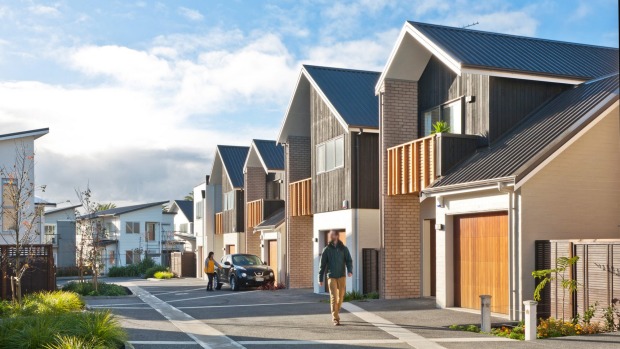
Most people still can’t actually afford houses at current prices, based solely on their salaries. Most people buy their houses by selling off their previous house, pocketing an increasingly large amount of cash, and then forking it back out for a house that is bigger, better, larger, or otherwise further up the ladder. As a single person, on an average wage, trying to save up for a deposit, it is now a completely impossible task to get to a 20% deposit if you don’t have cash from the sale of a previous house – so first home buyers are naturally reducing in number – and are almost exclusively couples. Singles are now off the list, for life, except in the back of beyond. And the ratio of what the average worker earns, compared to their boss, is pretty much certain not to be a one to three ratio any more. As an example, we now have companies where the CEO gets well over 10 times more than the lowest paid person in the company. Not good. Not equitable.
So what we have now, is quite simple. We have yet more money in circulation, chasing a not terribly larger pool of houses. Whether that money comes from Kiwi couples cashed up from selling, or from Chinese investors looking for a place to stash their cash that will appreciate quickly in value (they are not allowed to buy land in China), it still has the same effect – more money is put into circulation. Seeing as NZ’s population is only one third of one percent of China’s population, our stack of ‘excess’ homes just sitting, waiting to be bought, is snapped up almost instantly, by ‘investors’. For the Chinese, Auckland is the only kid in town that they want to play with. All Aucklanders, not just singles, are now shut out of the market. Coupled with that is the new culture of greed now so prevalent in our society: the property investors. Deathly cold to the pleas from those who cannot afford a single home, the property investors are basically just focused on serving their own interests, and screw anyone else that gets in their way. One house for yourself, and one more for a retirement package seems to be a reasonable attitude to me, but investors now are looking at 5, or 10, or maybe even 20 houses as a nest egg. That’s 20 other families you are screwing with, dashing their dreams of owning their own homes. That’s fundamentally and absolutely NOT the Kiwi way of doing things, but as the John Key government encourages people to be investors, then we can expect these people to continue to amass property, to continue to make our society increasingly non-egalitarian, and to continue to screw up the housing market for everyone else.

All of that money-grabbing, multiple house-buying attitude is attributable to one primary thing: excess liquidity. Where did all this excess money come from? Well, it wasn’t earned by dint of long hard labour, that’s for sure (the way our parents had to do it – work two or even three jobs, to earn the money up front). No, you just go to the bank and ask for some. The world is awash with money, especially due to the post GFC policy of ‘quantitative easing’ as it was politely known – in fact, it was just a fancy way of saying ‘print shit-loads of extra money and put it into circulation’. America did this. China did this. America now has more debt than it can ever pay off in a thousand years – hundreds of trillions of debt. One day, no doubt, it will all collapse. Call it what you will – I like to call it a ‘collective suspension of disbelief’. China is even worse, but as it is all controlled by the Communist party, instead of by the market, then it will collapse in a different way. There is no doubt to me, that the problem is not so much ‘not enough houses’, but instead it is a problem of ‘too much money’.
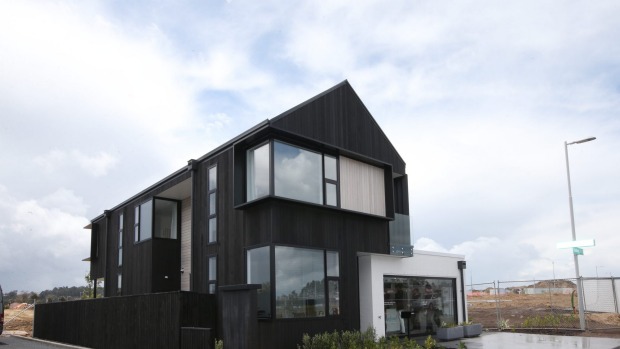
The answer, therefore, is relatively easy: turn off the flow of money. No more foreigners bringing in large amounts of dosh, that distort our system. And no more excessive loan lending to locals. Force property investors to divulge themselves of their (to me: ill-gotten gains) excess housing, by taxing housing, or taxing capital gains, or taxing land, or taxing their carbon emissions, as I am sure they are as flatulent and full of hot air as they sound.

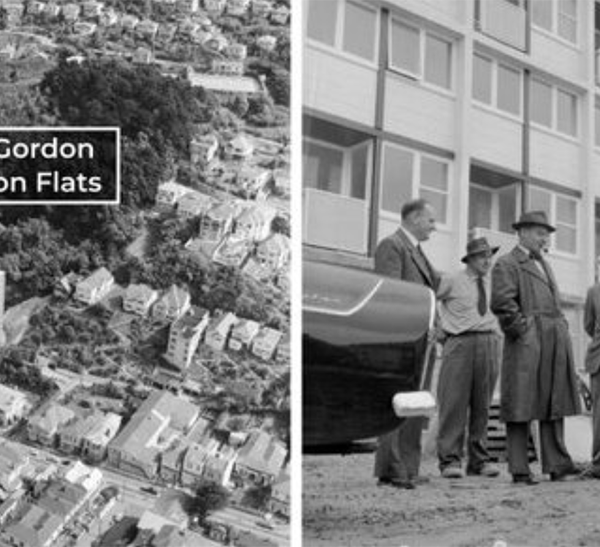

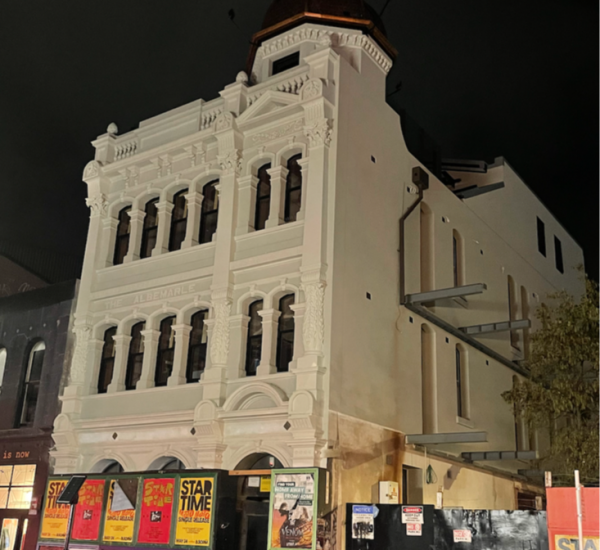
And what happens then? Have you thought it through that far? Price cash, anyone?
Price crash you mean? Yes, that is exactly what is needed, it would seem. Heads must roll, blood to be spilled on the table, and the greedy who have extended the terms of their loans way above what they can actually afford must, needs be, take a bath and lose their shirt.
Of course, that’s a truth that is unpalatable to anyone in government – they all know it, and they will have all ensured that they won’t personally get caught up in it, but here’s the thing:
1 – We can agree that the current Auckland prices are too high, right?
2 – If they are too high, then they are presumably better if they are lower, right?
3 – there are only two ways that they can become lower – either
A – price must crash, or
B – price must stagnate for a long time. In a time of high inflation that would be over relatively quickly, but in our present time of ultra-low inflation, you could be looking at 10-20 years of stagnation with zero house price increase, just to draw the prices down to a better (more affordable) level. And nobody except the Japanese want to have 20 years of stagnation… So: price crash it must ! And, to be logical, the sooner, the better.
Of course, that has happened before, in NZ, but in more recent times: Ireland.
At the end of the 80s, Ireland was in a massive funk, blue depressed mood, and all the Irish were leaving home to work in England. You could buy a whole house for a tenner, and a village for a hundred. Then the 90s happened and the EU happened, and EU gave oodles of cash to Ireland, and suddenly all the Irish fucked off back home and became multimillionaire property magnates.
And then of course something happened, around 2008 (or before?) and it all went pear-shaped. Property prices plunged. Entire developments of multi-unit dwellings sit empty and unloved and unloved in. Property carnage. Prices are quite good and affordable now, and all the foreigners who migrated there – they’ve buggered off as well.
There is no doubt in my mind that the same needs to happen here, and at some time, definitely WILL happen here. Its a game of thrones / chairs / stools, and the first person to chicken out and sit down, is the winner. Personally, I would like it if all the property investors were the ones to lose their shirts, but sadly, it is more likely to be the most vulnerable – the young couples who are desperate to get on the property ladder and finally get a house at exorbitant cost – they will suffer the most.
At the same time, what about reducing the real cost of housing by shrinking average floor areas, investing in industrial production of housing elements, building apartments? Slap away the invisible hand in favour of some actual state intervention.
Earthquake repair has been rebranded as economic growth. Let’s start treating construction as demographic crisis recovery.
This is some funky economics. The price of housing depends on the demand for housing; if every household suddenly has double the income (via one of the people entering the workforce) that does not mean prices for houses automatically double. Measures of currency circulation do not show some sudden increase in the money supply you suggest.
The high cost of housing is simply that is now a higher proportion of buyers/demand (via migration, etc) relative to sellers/supply (via NIMBYism etc). The causation is backwards: ‘excess’ investment is not making the prices of houses more expensive, it is because houses are expensive that they become attractive sites for investment. If you want to encourage investors/developers to build more houses find incentives that match this, such as a land tax, or do something about the planning laws that stifle new development. Many people make money of essential goods; it doesn’t make their profit an ‘ill-gotten gain’ just because they happen to be in a market that had a growth spurt.
Marginal – good points, but i disagree. The price of things does not just depend on supply and demand of the item – it also depends on the price someone is prepared to pay, as well as their access to a supply of that money. Take, for instance, an old black singlet formerly owned by Peter Snell. To you and I, perhaps, it is not worth that much. To a collector, however, their price they could go to might well exceed ours. Then take a collector with deep pockets like Te Papa, and the price skyrockets. In a similar manner, overseas buyers inevitably affect a local market. Locals, used to a market and their fairly static local market prices, are amazed when outsiders come to a market and are prepared to pay more. Distortions occur. After a while of this happening, the increased price becomes the new normal, and formerly happy locals cannot afford their previous settled market. This is the same whether it is a market of beans, or tomatoes, or houses. You can say it is just supply and demand of the objects, but i say it is also supply of the money.
I saw this happen in Croatia, before and after the war, and Croatia’s subsequent entry into the EU. War aside, Croatia used to have houses lived in by Croatians, and then housing prices took a hit during the war, but after the entry into the EU, the locals are now steadily being priced out of the market. By immigrants. Rich EU members, mostly British and German apparently. I’d argue, not so much supply and demand of the housing, but definitely more money now in circulation… Is it a good thing? Well, tourism has gone up by a huge factor, but local young couples can no longer buy their first home…. Sound familiar?
Arthur Grimes (ex Reserve Bank) has weighed in on this subject, and agrees that a price crash is necessary:
http://thespinoff.co.nz/featured/04-07-2016/how-to-fix-a-broken-auckland-add-150000-homes-to-crash-prices-by-40/
I was going to compare this to Peru’s crop of quinoa. It is now being seen as desirable by non-Peruvians, so farmers/wholesalers are selling to the highest bidder.
Apparently that is a bunch of hooey, after economic researchers went out and di some actual, y’know, research. Although the amount of quinoa consumed was less, households were better off financially.
So, what is missing here is cold hard data. The Government’s attempt to gather it was pathetic. Is there someone out there brave enough, in the name of economic research, to call a foreigner, a foreigner?
Chaos:
http://www.stuff.co.nz/national/politics/opinion/81991274/governments-92m-dividend-snafu-raises-more-questions-than-ministers-will-answer
Starkive – indeed, there are a whole lot of media articles going nuts on this topic right now. I’m interested that this one:
http://www.nzherald.co.nz/business/news/article.cfm?c_id=3&objectid=11672596
says that the median income for Aucklanders aged 20-40 is $93,000 – that seems hugely high to me. Really?
And then there is Hickey on the “Down-trou”
http://www.nzherald.co.nz/opinion/news/article.cfm?c_id=466&objectid=11671668
But back to your link – I can’t believe that the Gov would change policy just because Joyce made an announcement, but surely if they had already decided that, when Little came out with his announcement a few days ago, wouldn’t the Gov have crowed “But we’ve already done exactly that – Labour, you’re too little, too late again”?
It is, of course, an imminently sensible solution. The “annual dividend” from HCNZ was always a really dumb thing to do.
Re median incomes, I think the key word in the article is “household”- I don’t know the prevalence of two-income households in the 20 – 40 band, but presumably it is high enough to turn a median household income into little more than $50,000 per earner. Rather more plausible…